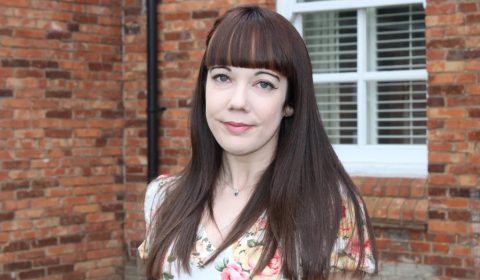In today’s digital-first economy, programming skills have become increasingly valuable across virtually every industry. Whether you’re looking to switch careers, advance in your current role, or simply future-proof your skillset, learning Python could be your stepping stone to new opportunities.
 Why Python?
Why Python?
Python has emerged as one of the most in-demand, high-level programming languages globally, and for good reason. Its clear, readable syntax makes it very easy to learn in comparison to other programming languages (like C/C++, JAVA, JavaScript, etc.) and therefore ideal for beginners, while its powerful capabilities support everything from automation and scripting to data analysis and artificial intelligence. Companies like the BBC, NASA, and Google rely on Python, and it’s the backbone of innovations in field s ranging from healthcare to financial services.
s ranging from healthcare to financial services.
Python in the Age of AI
The rise of AI and developer copilots has transformed the programming landscape, making now an ideal time to learn Python. Far from replacing developers, AI tools are empowering them to be more productive and creative than ever.
AI-Enhanced Development
Modern Python developers work alongside AI tools that:
• Autocomplete code and suggest solutions
• Catch potential bugs before they occur
• Generate code snippets from natural language descriptions
• Explain complex code and suggest improvements
• Automate routine programming tasks
This means that even as a beginner, you can now have powerful AI assistants helping you learn and code more efficiently.
Future-Proof Skills
While AI tools can now handle routine coding tasks, they’ve increased demand for developers who are able to:
• Architect complex systems
• Review and validate AI-generated code
• Write precise prompts for AI tools
• Integrate AI capabilities into applications
• Understand the limitations of AI assistants
Transform Your Career Prospects
The UK tech sector is experiencing unprecedented growth, with programming skills commanding competitive salaries and offering flexible career paths. Recent studies show that Python developers in the UK earn an average of £57,000 per year.
But Python isn’t just for software developers. Knowledge of Python can enhance your value in roles such as:
• Data Analyst
• Business Intelligence Specialist
• Marketing Analyst
• Financial Modeller
• Research Scientist
• Project Manager
Hear from Our Alumni
“Philip is a fantastic tutor who has a dynamic approach to teaching the basics in Python programming. I really appreciated the way that we could always ask for help during exercises and also that we could send me him requests for materials to be treated during class.” Anne Marie Muller, former student
“This course is ideal for anyone wanting to start the thrilling journey of implementing AI. It effectively combines hands on practical skills with clear, fun explanations of the underlying theory – not easy with a subject that combines partial differentiation and a jumble of confusing terms and emerging ideas. I would strongly recommend you sign up.” Peter Bradley, former student
“Genuinely one of the best tutors I’ve ever had – both at undergraduate & post graduate level. I’ve tried to learn how to code dozens of times and it’s never stuck. Philip was excellent at judging the level of the class and guiding us through the slides carefully. He went above and beyond, and made me feel extremely well supported. 10/10 will be recommending to my colleagues! Thank you, Philip!” James Donovan, former student
 Why Choose Our Python Programming Courses?
Why Choose Our Python Programming Courses?
At City St George’s we run a range of python courses from an Introduction to Python Programming to Data Analytics and Machine Learning. Our intensive short computing courses are designed for busy professionals looking to acquire practical programming skills. Over five-ten weekly evenings, you’ll progress from basic concepts to creating real-world applications. Here’s what makes our python courses unique:
Practical, Industry-Focused Learning
• Taught by Industry Professionals
• Industry-standard tools and best practices
• Flexible evening and weekend schedules
- Comprehensive Curriculum – subjects covered include:
- Python fundamentals and programming concepts
- Working with databases
- Data analysis and visualisation
- Building basic applications
- Working with HTML pages
- File manipulation: Reading and Writing Files
- Conversational AI Use
Expert Instruction
Our instructors bring years of industry experience, combining theoretical knowledge with practical insights from their work at leading tech companies.
Your Learning Journey
The courses are structured to ensure steady progression while accommodating work commitments. Each week builds on previous knowledge through:
• Interactive live sessions
• Guided practical exercises
• Real-world project work
• Peer learning opportunities
Next Steps
Join the thousands of professionals who have transformed their careers through coding. Our next introductory python programming course begins in January online.
Ready to take your career to the next level? Why not attend our free online open evening session on December 12 to learn more about how Python programming could transform your career prospects.


 habitats throughout the seasons, illustrated by Carolina Rabei and published by Nosy Crow and the National Trust. Both books have been translated into other European languages including French, German and Danish.
habitats throughout the seasons, illustrated by Carolina Rabei and published by Nosy Crow and the National Trust. Both books have been translated into other European languages including French, German and Danish. This term’s guest alumna will be debut cosy crime author and
This term’s guest alumna will be debut cosy crime author and 































Recent Comments